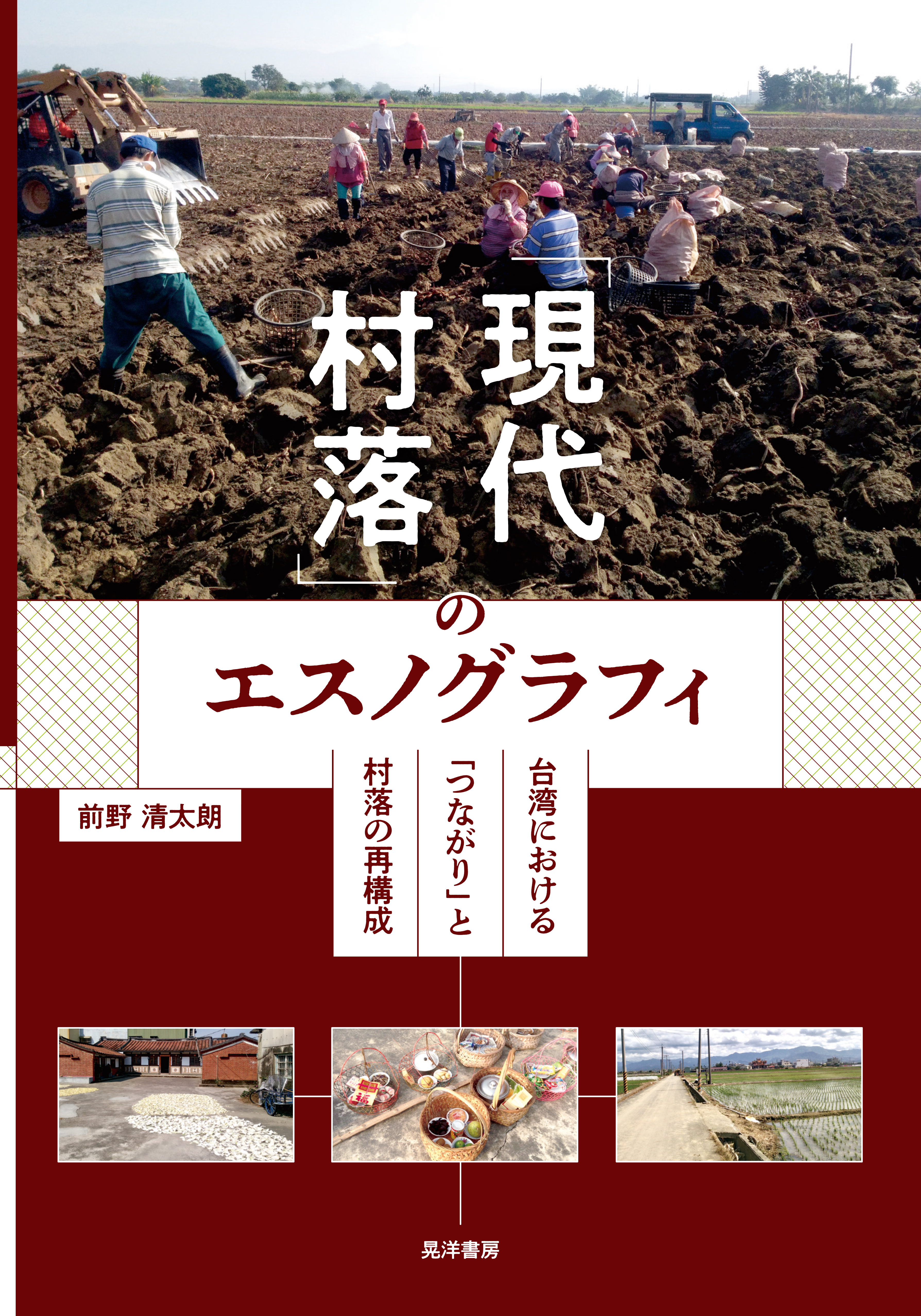
Title
“Gendai sonraku” no ethnography (Relatedness and Reformation of Rural Community - An ethnography of Contemporary Taiwanese Village)
Size
236 pages, A5 format
Language
Japanese
Released
January 20, 2024
ISBN
9784771037793
Published by
Koyo Shobo
Book Info
See Book Availability at Library
Japanese Page
What is a village community in contemporary society? Industrialization, urban migration, mobilization, and telecommunications have all expanded the social space for rural people. Contemporary rural societies are already open to the external environment. Nevertheless, even in developed countries, people still maintain small, face-to-face communities. This book examines the formation and acceptance of contemporary village communities in Taiwan, which is a mature and developed society.
Researchers have studied these two groups in rural Taiwan for a long time. The first is a kinship group, and the other a group for folk rituals. They have been viewed as units that play important roles in Taiwanese communal activities. In his fieldwork, the author found that the roles played by these groups had changed. Kinship groups were reorganized into small private spheres of people with close interactions. They do not share property based on paternal lineage nor do they work together on such estates. In the past, multiple kinship groups supported rituals in folk religion. Furthermore, different kinship groups worshipped different deities. Currently, statues have been gathered in a single shrine in each settlement. Households maintain rituals, rather than kinship groups. Such relationships are now purely religious.
Relationships based on kinship and folk religion ceased to play diverse social roles. Administrative villages began to perform new functions in their place. Interestingly, Taiwanese administrative villages have little authority; they have no budget and consisted only of a village head and a clerical worker. Resources for village administrative activities were acquired by village chiefs by maintaining relationships with senior government offices and through repeated informal lobbying. The expansion of the informal functions of administrative villages has connected people to their frameworks, including elections, to improve productive activities or folk rituals. In search of external resources, the inhabitants have transformed administrative villages into political and autonomous realms.
Some developed countries, including Japan, have merged municipalities to cover larger geographic areas and concentrate on limited financial and human resources. However, these municipalities obscure the locus of decision making regarding small local issues. Contemporary village communities provide people with social units for face-to-face decision making.
This is a simplified outline of the book: Complex twists and turns were observed in the individual cases. I hope you will discover the fascinating processes by which people's cumulative choices have created new situations.
(Written by: MAENO Seitaro / April 01, 2024)
Related Info
The 4th UTokyo Jiritsu Award for Early Career Academics (The University of Tokyo 2023)
https://www.u-tokyo.ac.jp/ja/research/systems-data/n03_kankojosei.html



